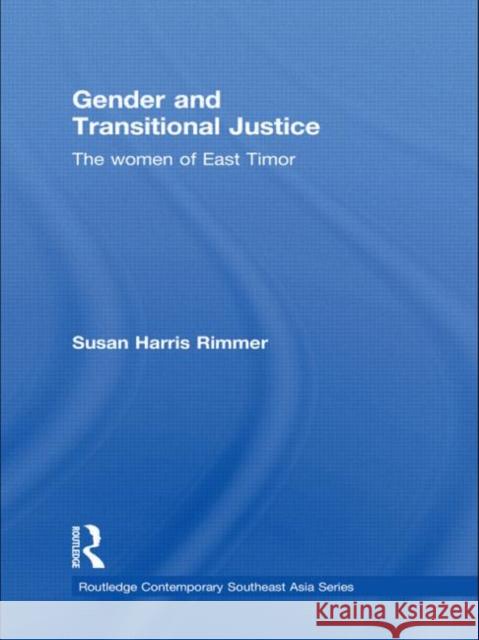Gender and Transitional Justice: The Women of East Timor » książka
Gender and Transitional Justice: The Women of East Timor
ISBN-13: 9780415561181 / Angielski / Twarda / 2010 / 242 str.
Gender and Transitional Justice: The Women of East Timor
ISBN-13: 9780415561181 / Angielski / Twarda / 2010 / 242 str.
(netto: 785,60 VAT: 5%)
Najniższa cena z 30 dni: 730,42
ok. 30 dni roboczych.
Darmowa dostawa!
Gender and Transitional Justice provides the first comprehensive feminist analysis of the role of international law in formal transitional justice mechanisms. Using East Timor as a case study, it offers reflections on transitional justice administered by a UN transitional administration. Often presented as a UN success story, the author demonstrates that, in spite of women and children's rights programmes of the UN and other donors, justice for women has deteriorated in post-conflict Timor, and violence has remained a constant in their lives. This book provides a gendered analysis of transitional justice as a discipline. It is also one of the first studies to offer a comprehensive case study of how women engaged in the whole range of transitional mechanisms in a post-conflict state, i.e. domestic trials, internationalised trials and truth commissions. The book reveals the political dynamics in a post-conflict setting around gender and questions of justice, and reframes of the meanings of success and failure of international interventions in the light of them.
Gender and Transitional Justice provides the first comprehensive feminist analysis of the role of international law in the formal transitional justice mechanisms. Using East Timor as a case study, it offers reflections on transitional justice administered by a UN transitional administration. Often presented as a UN success story, the author demonstrates that, in spite of women and children’s rights programmes of the UN and other donors, justice for women has deteriorated in post-conflict Timor, and violence has remained a constant in their lives.
This book provides a gendered analysis of transitional justice as a discipline. It is also one of the first studies to offer a comprehensive case study of how women engaged in the whole range of transitional mechanisms in a post-conflict state, i.e., domestic trials, internationalised trials and truth commissions. The book reveals the political dynamics in a post-conflict setting around gender and questions of justice, and reframes of the meanings of success and failure of international interventions in the light of them.











